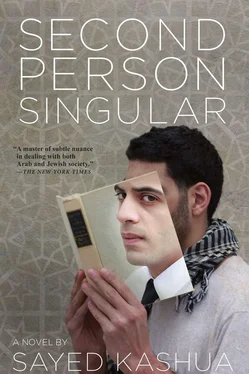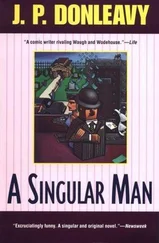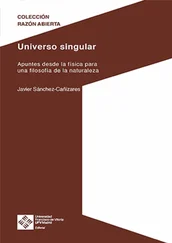“Amir,” the husband said. “I know an Amir, but he’s a little kid. In first grade.”
“No, that wouldn’t be right.”
“Oh,” the husband said, “maybe it’s that Amir, the son of. . wait a second.” He called to his wife, “Do you remember what’s her name’s son, you know, Abu Hasan’s daughter, the widow, the one who left, what’s her name?”
“Meissar?” he heard the woman say. “I think she had a kid but I don’t remember his name.”
“It’s possible,” the husband said. “Might be him. If I’m not mistaken, he doesn’t live in Tira anymore. They left when he was a kid, he and his mother, there was a whole big mess and they left. Might be the guy you’re looking for.”
“I see. So they don’t live in Tira?”
“If it’s them, I really don’t know where they are. I think they may have moved to Jaljulia back in the day, the mother and the son. But I’m not sure.”
“To Jaljulia,” the lawyer said. “Thank you so much for your help, sir. Thank you.” The lawyer hung up the phone and typed Jaljulia into the space on the Web directory where it asked for place of residence. He didn’t find any Amirs but he did see a listing for a Meissar La’ab. He knew that was the person he was looking for, even though the name was slightly different. The Israeli authorities regularly bastardized Arab names.
The lawyer dialed the number. His heart thumped and he tried to organize his thoughts. What if he’d moved back in with his mother? What if he answered? He decided he’d hang up immediately if he heard a male voice. Maybe he’d ask, “Amir?” and then, if the guy said something like, Yes, who is this? , the lawyer would end the conversation.
“Hello,” the lawyer said to the voice on the other end of the line, but it was a recorded message: “The number you have reached is no longer in service.”
95 OCTANE UNLEADED
What exactly was he planning on doing? What would he do if he found out where Amir Lahab lived? The roads were relatively empty on Shabbat and he could make the drive down to Jaljulia in around half an hour. The lawyer felt the need to make the trip even though he wasn’t sure he’d get out of the car. He couldn’t stay in the office and he had the feeling that a drive on the open road would do him good. Sometimes driving alone in the new car had a therapeutic effect.
There were only a few cars waiting at the light on the way out of Jerusalem. A picnic Saturday, the lawyer thought, as he looked over at the family in the car to his right. He liked it when drivers eyed his car, liked it when he spotted women looking at him through their sunglasses, trying to guess what the rich man in the luxury car did for a living. But right now all he felt was jealousy for the family to his right. He saw the woman talking away at her husband, maybe even arguing, and he recalled the way his wife would hold her silence for long stretches of time when they were in the car together. She could keep quiet for hours, and it always pissed him off.
“Say something,” he’d plead whenever they were on their way to his or her parents or just en route to some fancy hotel with the kids for the weekend. And she’d always respond, “What do you want me to say?”
The lawyer hit the gas and headed away from Jerusalem, leaving the family car far behind. They want a show? He thought to himself, I’ll give them a show, and he remembered his first time on the highway with his daughter. She was a month old and his wife was in the back with the baby and the lawyer drove more slowly than he ever had in his life. He was sweating and his sweaty hands grew slippery on the wheel and he was afraid of losing control of the car. He stuck exclusively to the right side of the road and pumped the brakes whenever he had to slow down. He despised the car he had at the time, felt it was not to be trusted, that at any moment a tire could blow out, that the brakes could betray him at any turn, sending him and his family flying off the cliff. The lawyer shook his head free of those thoughts now and played with the buttons on the steering wheel, looking for talk radio, anything but music, anything that would take his mind off the matter at hand. But he found nothing.
What was the point in going to Jaljulia? The lawyer was not sure. Maybe it was his wife’s innocence that he sought. Maybe he wanted to know that the woman with whom he had not shared a bed for many years still loved him, even though he was not sure to what extent he loved her. Maybe he wanted to breathe life into the embers of his love — he’d read of such things — but he knew that at best the embers were extinguished and at worst had never been lit in the first place.
Or maybe he sought to retrieve his own honor. What was it that he wanted? To know that she’d cheated on him or to go back to living the way he had before he found the note? Maybe it was for the best that his life had been disrupted. Maybe it was a sign from above, he thought, even though he had never been one for celestial signs. Maybe it was time to pack his things and go, maybe it was time to stop sleeping alone in his daughter’s bed and start fresh, do everything differently, pick the kind of woman who would, as he imagined in his most melancholic moments, finally light the fire of love within him. The lawyer recalled an article he’d come across in which some important psychologist had said that love meant loving someone more than you loved yourself. Someone that completed you. Love is the ability to sacrifice for the object of your love, was the psychologist’s point. While reading the article, the lawyer had asked himself if those were his feelings toward his wife, and it pained him to admit that they were not. She did not complete him. On the contrary, he felt that married life limited him — financially, because he had a family to support, and professionally, because without the need to support them he might have gone back to school and pursued an advanced degree, perhaps a PhD, and become a professor, as he’d once wanted. At any rate, he didn’t want to sacrifice anything for her, that much he was sure of. But what did she lack anyway? he asked himself all of a sudden. After all, I give her whatever she wants. She has never wanted for anything. He remembered that the real matter at hand was her love for him, and not his for her. Does she sacrifice for me? the lawyer asked himself, and responded that it was not so.
Maybe at some point he really would come across what they call a soul mate. Maybe now that he was older, more organized, more aware of his wants, more in control of his thoughts, he would be able to discern between temporary lust and sustainable love. Maybe now he would be able to find a woman he could sleep next to every night, maybe he would feel the warmth of her body seeping into his bones, granting him a tranquility he had never known. The lawyer saw before his eyes a faceless woman, but he knew she had the face of an angel and she slept peacefully in his arms, her face smooth, a happy sheen across her cheeks. He imagined them sleeping harmoniously together, completing one another in their sleep, too, wrapped in a comfortable embrace, moving their bodies with complete synchronicity, always fitting together. For a moment he felt a rush of warmth in his heart. Maybe all of those romantic poets were right? Maybe he shouldn’t have been so dismissive of their words? Maybe he shouldn’t have been so skeptical of what was clearly a sublime sensation?
She, on the other hand, had never been skeptical. She was willing to lie, to live in sin, to risk her good name, the name of her family, the future of her children, all for a love she could not get from her husband. For a fleeting moment the lawyer admired his wife for her courage but the admiration quickly faded into hatred and contempt. His wife — she wasn’t smart, the lawyer thought; at best she was a functioning airhead. A miserable little Arab woman whose guides in life were love songs and filth-ridden melodramas. Only the lower classes were capable of falling blindly in love after adolescence, the lawyer thought, only the poor, the uneducated and unenlightened, could fall helplessly in love. Like animals, the lawyer said to himself, acknowledging, not for the first time, that there was no bridging the divide between their backgrounds, between where he came from and where he had found her. You must have to be primitive in order to continue believing in the delusion called love. It’s a lot like religion, the lawyer thought, it’s easy for them, the down and out, to embrace it.
Читать дальше












